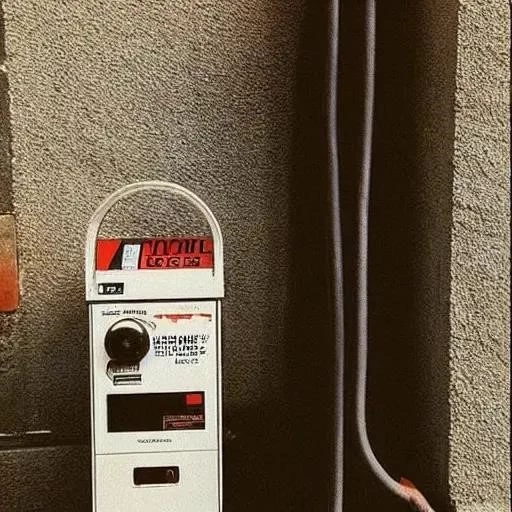
In a world increasingly driven by data and optimization, it’s astonishing how many drivers overlook one of the most fundamental aspects of vehicle ownership: selecting the correct petrol. Far from a trivial decision, your fuel choice is a silent yet incredibly powerful determinant of your car’s longevity, efficiency, and overall performance. Imagine feeding a finely tuned athlete the wrong diet; similarly, providing your vehicle with unsuitable fuel can lead to a cascade of costly problems, from reduced power output to long-term engine damage.
Many motorists simply grab the cheapest option at the pump, unknowingly compromising their vehicle’s sophisticated engineering. Modern engines, with their intricate designs and advanced combustion systems, are precisely calibrated to operate with specific fuel octanes, a measure of a fuel’s resistance to “knocking” or pre-ignition; Understanding these specifications, typically found in your car’s owner’s manual or on the inside of the fuel filler flap, is not just about compliance; it’s about empowering your car to deliver its intended power and efficiency. By integrating insights from automotive engineering and a dash of foresight, drivers can dramatically improve their vehicle’s health and performance, transforming a mundane task into a strategic decision for a brighter, more efficient motoring future.
Essential Fuel Selection Guidelines for Every Driver
Here’s a quick guide to help you navigate the complexities of fuel choice:
| Aspect | Description | Why It Matters | Reference |
|---|---|---|---|
| Octane Rating | Indicates a fuel’s resistance to premature ignition (knocking). Higher octane means greater resistance. | Using the specified octane prevents engine damage, ensures optimal performance, and maintains fuel efficiency. Lower octane in a high-compression engine can cause knocking. | |
| Manufacturer Recommendation | The specific fuel type (e.g., “Premium Unleaded,” “Regular Unleaded”) recommended by your car’s maker. | Engines are engineered for a particular fuel. Adhering to recommendations guarantees the engine operates as designed, preserving warranty and preventing wear. | Consumer Reports on Fuel Choice |
| Ethanol Content (E10, E85) | The percentage of ethanol blended into petrol. E10 contains up to 10% ethanol; E85 up to 85%. | Not all cars are compatible with high-ethanol fuels like E85. Using incompatible fuels can damage fuel system components and reduce fuel economy. | EIA on Ethanol in Gasoline |
| Fuel Additives | Detergents and other chemicals added to petrol to clean engine parts and improve performance. | High-quality fuels with advanced additive packages can prevent carbon buildup, ensuring injectors and valves remain clean for better combustion and efficiency. |
The science behind fuel choice is fascinatingly precise. Engines designed for premium fuel, often found in high-performance or luxury vehicles, typically feature higher compression ratios or turbocharging. These characteristics demand fuel with greater knock resistance to prevent pre-ignition, a phenomenon where the fuel ignites before the spark plug fires, leading to inefficient combustion and potential engine damage. Conversely, an engine engineered for regular petrol will gain no discernible benefit from premium fuel; it’s simply an unnecessary expense. The crucial takeaway: more expensive doesn’t always mean better for your specific car. It’s about suitability, not superiority.
Leading automotive engineers consistently stress the importance of following manufacturer guidelines. “Think of your car’s engine as a bespoke suit,” explains Dr. Lena Petrova, a powertrain specialist at a prominent European car manufacturer. “It’s tailored to fit a specific fuel. Deviating from that fit can lead to strain, wear, and a premature need for repairs.” This perspective underscores a fundamental truth: respecting your vehicle’s design specifications is the cornerstone of responsible ownership. The initial savings from choosing a cheaper, incorrect fuel are often dwarfed by future maintenance costs or reduced resale value, a sobering thought for any budget-conscious driver.
Looking ahead, the landscape of automotive fuels is rapidly evolving, driven by innovation and a global push for sustainability. While traditional petrol remains dominant, the conversation is shifting towards bio-fuels, synthetic alternatives, and the accelerating transition to electric vehicles. However, even as we navigate this exciting future, the principles of optimal fuel matching will endure. Whether it’s ensuring your electric vehicle charges efficiently at the right voltage or that your hybrid system uses the most compatible blend, understanding energy inputs remains paramount. This forward-looking approach positions drivers not just as consumers, but as active participants in their vehicle’s performance narrative, making informed choices that resonate with efficiency and environmental consciousness.
Ultimately, the question of “what petrol does my car use” transcends simple curiosity; it’s an invitation to unlock your vehicle’s full potential. By taking a few moments to consult your owner’s manual and understanding the nuances of fuel types, you embark on a journey of enhanced performance, greater fuel economy, and a significantly extended vehicle lifespan. This isn’t just about saving a few pennies at the pump; it’s about making a smart investment in your automotive future, driving confidently knowing you’re providing your mechanical companion with precisely what it needs to thrive on the open road. The future of driving is efficient, informed, and incredibly rewarding for those who choose wisely.
